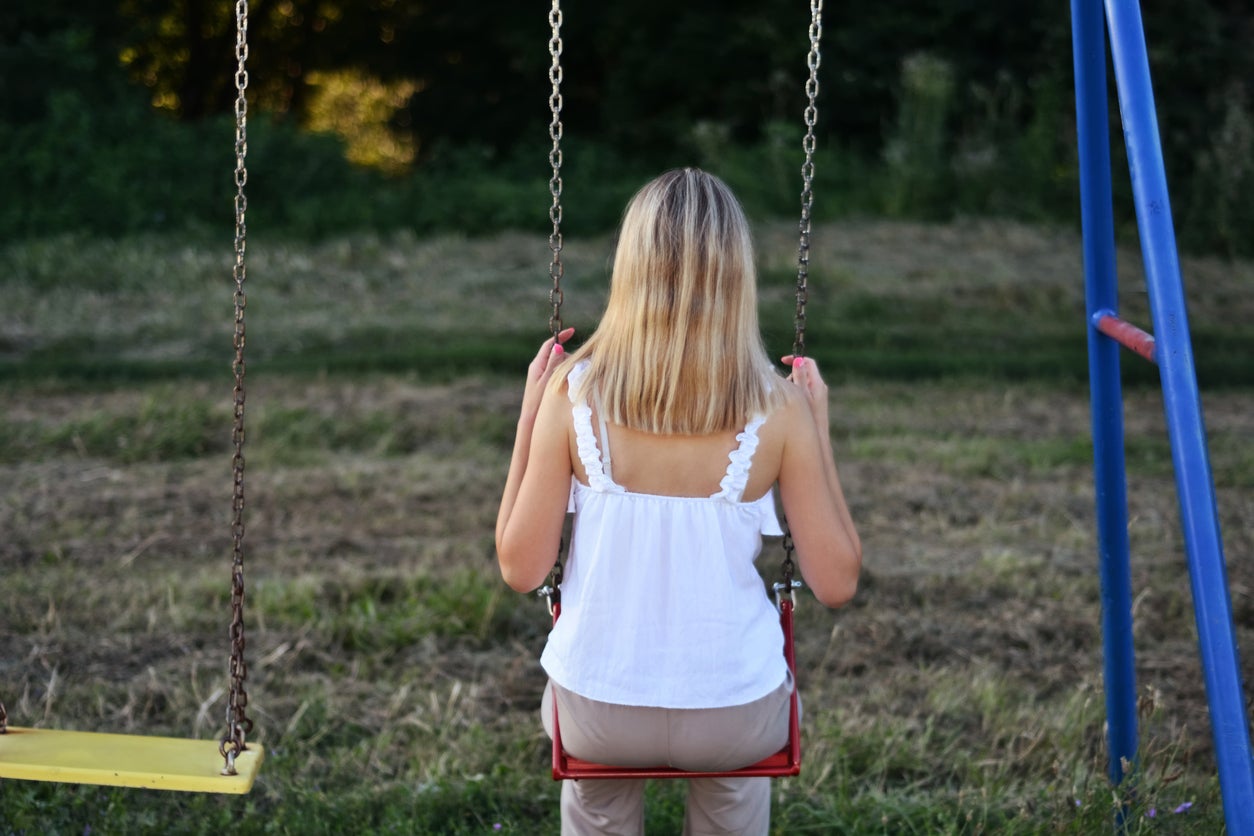We need to stop describing women based on their maternal status
Harmful terms like ‘childless’ reinforce the idea that motherhood is the norm, but also centre on a deficiency, a lack, an absence


Your support helps us to tell the story
From reproductive rights to climate change to Big Tech, The Independent is on the ground when the story is developing. Whether it's investigating the financials of Elon Musk's pro-Trump PAC or producing our latest documentary, 'The A Word', which shines a light on the American women fighting for reproductive rights, we know how important it is to parse out the facts from the messaging.
At such a critical moment in US history, we need reporters on the ground. Your donation allows us to keep sending journalists to speak to both sides of the story.
The Independent is trusted by Americans across the entire political spectrum. And unlike many other quality news outlets, we choose not to lock Americans out of our reporting and analysis with paywalls. We believe quality journalism should be available to everyone, paid for by those who can afford it.
Your support makes all the difference.I was 27 when the status of my womb became fodder for casual comment. Unfortunately, I hadn’t been copied into the announcement that my parental status was now a conversational free-for-all.
I’d got used to the “better get a move on!” half-jokes from acquaintances at awkward family events, but I was 35 when I realised the tone of remarks had shifted. Something unspoken had happened, some silent tide had turned and the sentiment around my expected motherhood transitioned from jolly but chastening encouragement to the mournful, pitying recognition of impossibility.
I was at a funeral when a family member informed me that I would regret not having children. It was an unsolicited remark that probably reflected the experiences of the speaker more than their understanding of my circumstances. They couldn’t possibly have understood – I hadn’t told them anything. They knew I didn’t have children and that was enough for them to pronounce on my future: one stained by absence and remorse. That week, I grieved not only for the person who’d died but also for the fertility I’d lost and the children I would never have.
I was in an accident and emergency waiting room, in the midst of miscarriage, when one of the strangers sitting next to me opened a conversation by asking if I had children. I knew she meant well and intended no harm by her question – but it ached nonetheless. The baby that was still inside me had been my little mate. I loved them. Carrying them with me gave me a revelatory feeling of strength and power. While we were together, I felt fortified. At an antenatal appointment just a few weeks before, the midwife had beamed when she saw me: “Don’t you look the picture of health!” For the first time in my life, I agreed with a compliment and felt it was true. I felt full of life. I was full of life. Until I wasn’t.
Miscarriages are regular occurrences. So many women have experienced pregnancy loss that I’ve felt almost embarrassed to be distressed – the enormity of my grief felt self-indulgent in the vastness of loss. This week is World Childless Week – an initiative that aims to “raise awareness of the childless not by choice (CNBC) community”.
According to World Childless Week organisers, “one in five women at the age of 45 does not have children and 90 per cent of them are childless not by choice”. I think the organisation is doing essential and much-needed work but the CNBC community is one to which I wish I didn’t belong.
The labels assigned to those without children feel abrasive, chafing wounds I’m desperately trying to heal. The term “childless”, for example, feels dark. For me, it not only reinforces the idea that motherhood is the norm, but also centres on a deficiency, a lack, an absence.
“Childfree” is a term generally considered to be a more positive alternative – especially for those who’ve chosen not to have kids – but it also feels difficult. It suggests liberation rather than loss but it also focuses on maternity even if the deficit is given an affirmative spin. So much of the discourse around motherhood assumes that maternity is the pinnacle of womanhood, the fulfilment of femininity that we can’t seem to find language that doesn’t bolster potentially damaging ideas about women.
In our pro-natalist culture, maternity is so entrenched in our cultural understanding of femininity that women’s maternal status is constantly centred, questioned, criticised, and discussed. Dr Dawn Llewellyn at the University of Chester has researched motherhood and voluntary childlessness in Britain. She suggests there’s a “cultural maternal expectation that constructs women as maternal bodies, which silences and marginalises women from articulating their complex relationship with motherhood and childlessness”. I think Dr Llewellyn summarises my issue: the expectation of motherhood can be as damaging as the loss of pregnancy.
Frankly, I don’t want to be childless or childfree. I don’t want to be viewed through the prism of mother-never-to-be with the sad smiles, hand-pats and pitying looks that come as part of an unwanted package. Perhaps it’s time to chuck the labels and stop describing women according to their maternal status.
Join our commenting forum
Join thought-provoking conversations, follow other Independent readers and see their replies
Comments